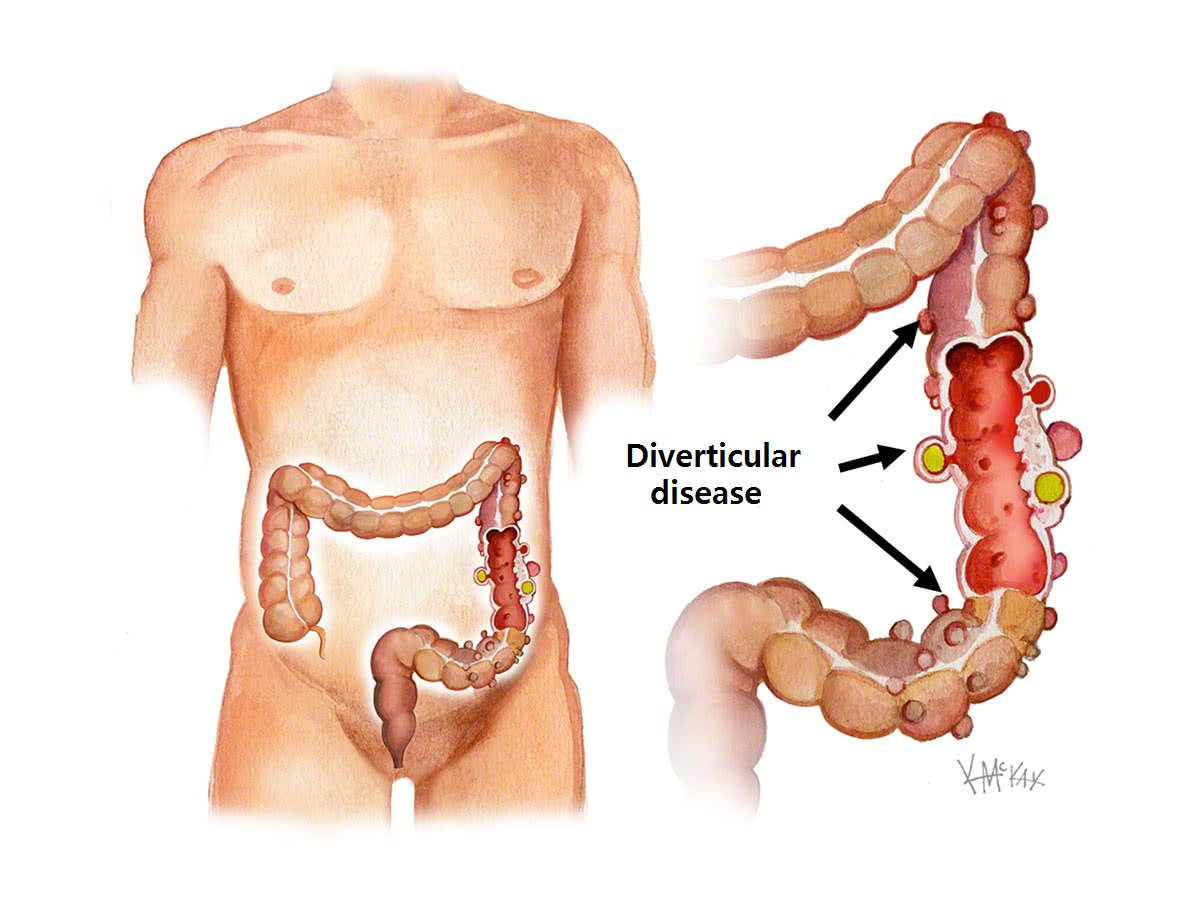Diverticular disease – This course is designed to understand the concept of community health nursing: nurses’ roles and interventions in family health, school health, occupational health, environmental health, elderly health care, gender issues, disaster management and principles and terminology of epidemiology. The aim of the course is to acquire knowledge and skills in community health nursing.

Diverticular disease
Definition of Diverticular Disease.
Diverticular disease consists of three conditions that involve the development of small sacs or pockets in the wall of the colon, including diverticulosis, diverticular bleeding, and diverticulitis.
Or,
Diverticular disease is the general name for a common condition that causes small bulges (diverticula) or sacs to form in the wall of the large intestine (colon). Although these sacs can form anywhere in the colon, they are most common in the sigmoid colon (part of the large intestine closest to the rectum).
Symptoms of Diverticular Disease
- Left sided abdominal pain
- Constipation/diarrhoea
Diagnosis of Diverticular Disease.
- Diverticulosis often causes no symptoms. It may be diagnosed during screening tests such as a colonoscopy.
- A CT scan of the abdomen and pelvis may be used to confirm the diagnosis of diverticulitis.
Treatment of Diverticular Disease.
- Traditional advice was to eat a high-fibre diet.
- However, it is now thought that a low-fibre or low-residue diet can ease the symptoms when there is a flare up or suspected inflammation.
- This reduces the likelihood of waste matter brushing against and irritating the affected bowel wall.
- Regular doses of paracetamol can be used to relieve pain.
- Avoid products containing codeine or opiates, as these cause constipation.
- Where patient must take these for other painful conditions, Doctor may prescribe laxatives.
Surgery for diverticular disease is indicated for the following:
- A rupture in the colon that causes pus or stool to leak into the abdominal cavity, resulting in peritonitis, which often requires emergency surgery.
- An abscess than cannot be effectively drained.
- Severe cases that do not respond to maximum medical therapy including IV antibiotics and hospitalization.
- Patients with immune system problems (e.g. related to an organ transplant or chemotherapy).
- A colonic stricture or fistula.
- A history of multiple attacks may result in a patient deciding to undergo surgery to prevent future attacks.

Prevention of Diverticular Disease
- It is thought that a high-fibre diet can help the large bowel function more efficiently.
- Regular light to moderate exercise can also keep your bowel functioning normally.
- It is recommended that an otherwise healthy person drinks two to three liters of water over the course of a day.
